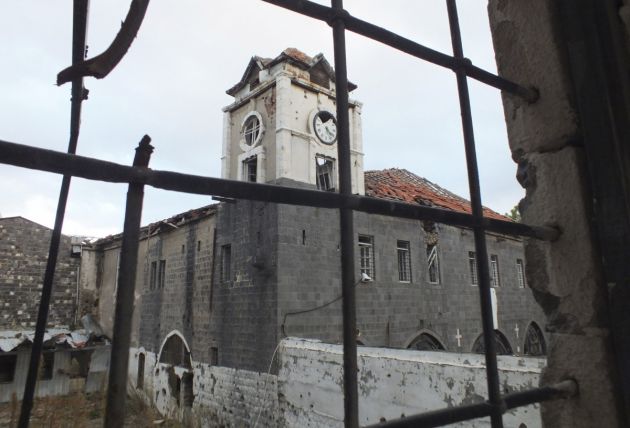Abducted Syria clerics 'need prayers' for them and their country

The World Council of Churches general secretary has called for special prayers for Christian clerics, including priests and nuns, abducted in Syria's debilitating civil war.
"As the Christmas season is upon us, it is important to remember in our prayers and thoughts that the 12 nuns and Archbishop Ibrahim and Archbishop Yazigi remain missing," WCC general secretary, Rev. Olav Fykse Tveit, said in a statement.
In a pre-Christmas statement the said it was calling on the council's 345 member churches and churches around the world to continue to pray for the safe return of the 12 nuns abducted from the Monastery of St Thecla in the historical town of Maaloula on 2 December 2013.
It calls for prayers "as well as the two Archbishops of Aleppo in Syria Mar Yohanna Gregorios Ibrahim from the Syriac Orthodox Church and Archbishop Paul Yazigi from the Greek Orthodox Church of Antioch who were kidnapped in April 2013 near Aleppo, Syria on their way back from a humanitarian mission."
Separately the Archbishop of Canterbury, Justin Welby, said in an interview with an Anglican newspaper that the Church in the West cannot intervene in conflicts in places such as Syria and Egypt - unless it is invited to do so.
Praying for the region is "not a cop-out," he said in an interview with the Church Times, an Anglican newspaper. "It's engaging with a God who changes history. The core of our belief is that that makes a difference."
The abducted nuns and both archbishops are deeply missed by their church communities and families, said the WCC leader.
"The pain of this separation has added to the ongoing suffering inflected upon all people of Syria because of the conflict. It is very sad and tragic that thousands of Syrian peoples have disappeared in prisons."
The WCC called on all the actors in the Syrian conflict to spare all civilians including religious people and not take them as human shields.
INTERNATIONAL COMMUNITY
"The WCC calls also on the international community to stand in solidarity with all victims of kidnappings and forced disappearances and mobilize all their efforts in order to release them and prevent such events from taking place again."
In his interview with the Church Times on December 20 Welby said, "We would be delighted to play a reconciliation role if there is one we can play. If someone in a viable position on both sides says, 'Come and help,' we'll be on the next flight.
"Nothing can be done until people are willing to let something happen. If people want to fight, they fight. When both sides think they can win, they will go on fighting," ruling out any peace mission under present circumstances.
The archbishop acknowledged the plight of Christian communities in the region. Those in Syria were, he acknowledged, "unbelievably threatened at the moment, by both sides, and in great danger."
Until there was a change in the political situation, however, the [Anglican] Church would have to confine its efforts, he said, "with enormous risks and considerable impact," to the vital work of supporting the victims, the wounded, and refugees.
Welby, who is the spiritual head of the 80 million strong worlwide Anglican Communion was similarly reluctant to intervene on behalf of the Palestinians.
"All we can do as religious leaders, particularly with the complexities of the history of the British in the Middle East with the [Palestine] Mandate, is to go in with humility, follow the situation very closely," said the Anglican leader.
He said that staff from Lambeth Palace, where the Archbishop of Canterbury is based, were in Israel or the Palestinian Territories "almost every month, talking to people, above all listening to people, seeing how we can add our own little bit to what is happening from other people. You don't go in saying: 'It's OK - we're in here now: you can relax.'"